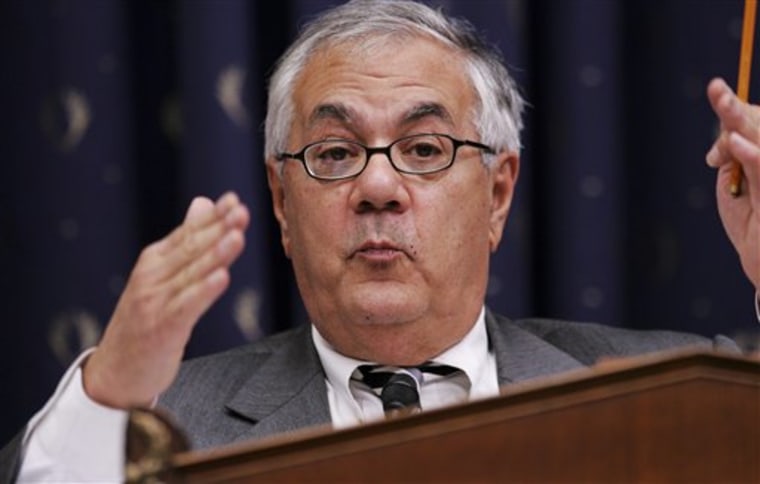Lawmakers waded gingerly Tuesday into a complex debate over how to overhaul the regulatory structure overseeing the U.S. financial system, promising stricter rules governing risky financial products that are seen as responsible for the current financial crisis.
It's likely to involve the creation of a special committee to draft the upcoming regulatory overhaul, said House Financial Services Committee Chairman Barney Frank, D-Mass.
The question of a special committee was but one topic as the panel kicked off what promises to be a long, complex debate into how to avoid a repeat of the current financial mess, which has its roots in excesses in the subprime mortgage market and rapidly eroding value of widely held mortgage-backed financial products.
Democrats controlling Congress have expansive, albeit vague, plans to extensively strengthen the current regulatory framework.
"Because our current regulatory regime has failed, we now must design a robust, effective supervisory system for the future," said Rep. Paul Kanjorski, D-Pa. "Deregulation — along with the twin notions that markets solve everything while government solves nothing — should be viewed as ideological relics of a bygone era."
Tuesday's hearing, however, provided few clues as to what solutions are on tap.
"We will be very careful," Frank said in looking ahead to debate next year on a financial overhaul measure. "These are historic decisions being made. It is as important a set of economic decisions I think this country will be making since the Depression."
Academic experts and industry groups testified on a range of topics. Joel Seligman, president of the University of Rochester said Congress should establish a single select committee to address the problem rather than have competing committees with different jurisdictions pursue an ad hoc approach.
Outside the hearing, Frank signaled he's willing to look into whether certain accounting rules should be loosened as Republicans and industry groups would like. They complain that the rules, which require companies to account for their assets at the price they could get if they had to sell them, can needlessly erode an institution's balance sheet when the market value of an asset like a credit default swap is far less than its actual worth.
Other ideas include applying regulations to so-called derivatives, including "credit default swaps," which promise payment to investors in mortgage bonds in the event of a default. Institutions such as American International Group have lost huge sums on such products.
"Credit swaps apparently have no regulators," said GOP Rep. Steve LaTourette of Ohio.
The panel's senior Republican seemed to caution against too much regulation.
"The market has been brutally efficient in the past several months," said Rep. Spencer Bachus. R-Ala., adding that if it's allowed to work "there will be negative consequences for all of us, but it will penalize those who took excessive risk. The best way to discourage people from making bad loans is ... to let the market make them eat those losses."
